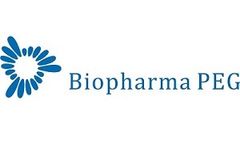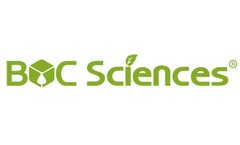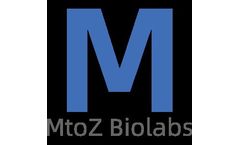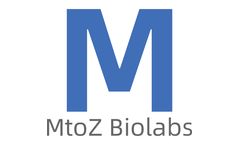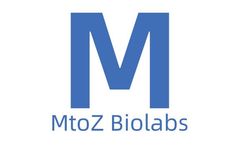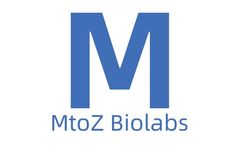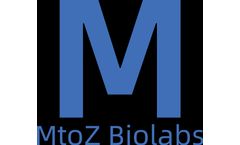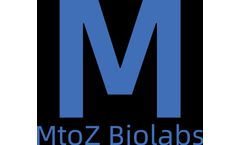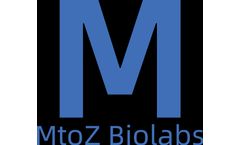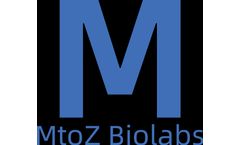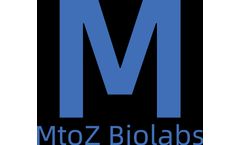Refine by
Biopharma Articles & Analysis
107 articles found
Recombinant protein expression is a cornerstone of modern biopharmaceutical development, providing the means to produce proteins with therapeutic potential, enzymes, and antibodies. Among various expression systems, Chinese Hamster Ovary (CHO) cells have emerged as the preferred choice for many researchers and pharmaceutical companies. This article delves into the significance of recombinant ...
In the ever-evolving field of biopharmaceuticals, the production of antibodies has taken center stage due to their critical role in therapeutic applications. Among the various production systems available, Chinese Hamster Ovary (CHO) cells have emerged as a gold standard for monoclonal antibody production, and specialized services have been developed to streamline this process. The Significance ...
Studies show that well-defined PEGylated drugs can overcome the immunogenicity and adverse effects associated with polydisperse PEG mixtures. or example, anti-PEG antibody levels rise with widespread use of conventional PEG, but discrete PEG linkers can mitigate this “ABC” effect. Biopharma PEG (Watertown, MA) offers a range of monodisperse PEG linkers specifically ...
Introduction PEGylation, the process of attaching polyethylene glycol (PEG) chains to therapeutic molecules, has become a cornerstone in pharmaceutical development. This technique improves the pharmacokinetic and pharmacodynamic properties of drugs, enhancing their stability, solubility, and circulation time while reducing immunogenicity. Since its first FDA-approved application in 1990 with ...
Cancer treatment has witnessed transformative advancements over the past few decades, notably with the emergence of CAR-T (Chimeric Antigen Receptor T-cell) therapy. This revolutionary therapy harnesses the body's immune system by genetically engineering T-cells to target and destroy cancer cells. Among the pioneering companies at the forefront of this innovation is Alfa Cytology, renowned for ...
Watertown, MA – March 24, 2025 – Biopharma PEG, a leading supplier of high-quality polyethylene glycol (PEG) derivatives, highlights its innovative product DSPE-PEG-Mannose, an advanced biomedical polymer with significant potential in drug delivery, tumor-targeted therapy, tissue recognition, and adhesion.Structural Advantages of DSPE-PEG-MannoseDSPE-PEG-Mannose is composed of ...
Introduction Good Manufacturing Practice (GMP) cell banks play a crucial role in the biopharmaceutical industry, serving as foundational repositories of cell lines used for the production of therapeutic biological products. Characterization of these cell banks is essential to ensure the safety, efficacy, and consistency of the biopharmaceuticals derived from them. This article will explore the ...
Recombinant protein drugs refer to protein products that originate from animals and plants and are developed through biotechnology research. These protein drugs exhibit certain biological activity and can prevent, diagnose, and treat diseases in humans, animals, and plants. Compared with small molecular drugs, recombinant protein drugs offer advantages such as high activity, high specificity, and ...
Antibody drugs are a kind of drugs that treat diseases through artificially synthesized antibodies, achieving therapeutic purposes by specifically binding with target molecules. Common types of antibody drugs include monoclonal antibodies, artificially synthesized antibody fragments, immunotoxins, antibody-drug conjugates, etc. Antibody drugs have shown remarkable therapeutic effects in the ...
Human brain has approximately 171 billion cells, of which slightly more than half (approximately 86 billion) are nerve cells. These 86 billion nerve cells are a diverse cell population with hundreds of specialized types and functions, but all originate from three neural cell lineages--neurons, oligodendrocytes and astrocytes. All three cell lineages originate from a pool of neural stem and ...
Recombinant protein vaccines are vaccines prepared by expressing and purifying the antigen proteins of pathogens in engineered cells (such as bacteria, yeast, mammalian cells, and insect cells) using genetic engineering technology. Compared with other types of vaccines, recombinant protein vaccines are more costly but have significantly better safety profiles. The intrinsic fluorescence of a ...
Recombinant protein drugs are protein-based therapeutic drugs which are produced by using DNA recombination technology or other biotechnological methods. These drugs include cytokines, peptide hormones, recombinant enzymes, monoclonal antibodies, and fusion proteins. Compared to traditional low-molecular-weight synthetic drugs, recombinant protein drugs have advantages such as high specificity, ...
Host cell protein (HCP) residual detection refers to the testing of proteins that may remain in the final product and originate from the production cell line (i.e., the "host") during the biopharmaceutical production process. This testing is crucial because these host cell proteins (HCPs) may impact the safety, efficacy, and quality of drug products.In the fields of biotechnology and ...
HCP (Host Cell Proteins) residual detection is a key quality control step in the field of biopharmaceuticals, aiming at ensuring that the proteins of the host cells used for producing therapeutic proteins in any cell-based production system are maintained at acceptable low levels in the final drug product.ImportanceHCPs are impurities during the production process, which may adversely affect the ...
As a reault, highly sensitive and specific methods are required for accurate measurement.Significance of Host Cell Protein Residue Detection in ...
Understanding Clonality Analysis Clonality refers to the origin of a cell population from a single 'parent' or progenitor cell through asexual reproduction or division. This concept is vital in cancer studies as it helps track the development of tumor cells from a single mutated cell. Clonality analysis is thus essential in understanding the evolution and the spread of cancerous cells in a ...
Therapeutic monoclonal antibodies (mAbs) are a class of antibody drugs that are highly uniform and have pharmacological effects against a single epitope obtained through molecular biology. In the process of new drug development, the study of pharmacokinetics is of great significance. The result can be used to guide the screening and development of drugs, and support the evaluation of their ...
Polyethylene glycol (PEG) derivatives have become pivotal in the pharmaceutical industry, revolutionizing drug delivery systems and enhancing the efficacy of various therapeutic agents. The unique properties of PEG derivatives, including their biocompatibility and ability to modify the solubility, stability, and bioavailability of drugs, make them indispensable in modern pharmacology. This ...
Biopharmaceuticals and personalized medicine are hot fields in the development of the pharmaceutical industry today. Proteins, peptides, and antibodies are important molecules in the body and are important objects of research in biopharmaceuticals and personalized medicine. With the continuous advancement of protein, peptide, and antibody sequencing technology, they are playing an increasingly ...
Antibody drug glycosylation analysis is a critical bio-pharmaceutical analysis method, specifically used to evaluate and monitor the glycan structures on antibody drugs. Glycosylation analysis is crucial for ensuring the safety, efficacy, and consistency of drugs, as the structure and composition of glycans directly influence the bioactivity and pharmacokinetic properties of antibody ...


